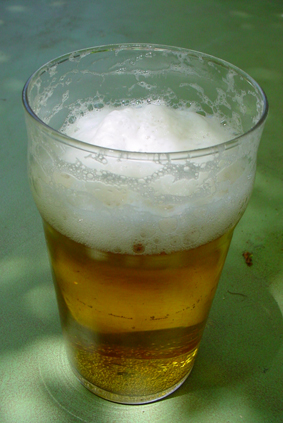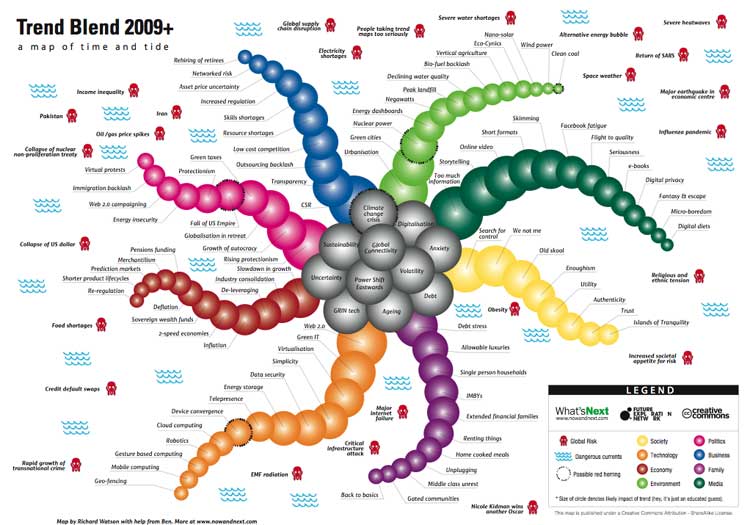According to a survey, 25% of them have difficulty walking and many of them are becoming disabled by rapid weight gain and a lack of proper sleep. The story in question is about battery-farmed chickens but it could equally be about our children.
In the UK, 25% of children between the ages of eight and ten years old have never played outside unsupervised. Meanwhile, Australia is in the middle of an allergy epidemic. According to the government, 40% of Australian children suffer from an allergy of one kind or another. Holy guacamole.
One reason for this is probably because our houses have become too clean and our kids are not exposed to enough dirt. Filth yes, there’s plenty of that on the various screens we allow them to sit in front of, but kids (and chickens) need to scratch around outside. But I don’t think blaming technology is fair. The real culprit here is parental paranoia. We have become afraid of life itself. For example, back in 2003 there were less than 200 non-food anti-bacterial products launched onto supermarkets shelves worldwide. By 2006, this had jumped to 1,610.
And it’s not just microbes we’re trying to ban. Many schools now have a strict policy relating to food allergies. Bags are searched every morning to identify illegal foodstuffs, which can include yoghurt, homemade cakes and, of course, anything that has ever come into contact with — or might have once said hello to — a nut. Nuts? I’d say so. But we are putting fear in front of fact.
The food allergy epidemic is largely a myth. According to the US Food Allergy & Anaphylaxis Network (FANN) around 150-200 people die each year in America due to allergic reactions to food. But according to the US Centre for Disease Control the actual figure is closer to 10. That’s a big difference. And let’s put this into perspective. Around 40,000 people are killed every year on American roads, including more than 2,500 kids. I suspect the ratios would be similar in Australia.
Don’t get me wrong here. Food allergies are real and can kill. Only last year a fourteen-year-old Melbourne boy died whilst on camp due to a food allergy. However, exaggerating the risk could be doing more harm than good because it feeds a culture of fear where children are overwhelmed by anxiety. Moreover, nothing can ever be 100% safe and squeezing the risk out of one area only displaces it somewhere else. Risk will not disappear simply because you regulate it.
I think we are creating a false sense of security and learned helplessness in other areas too. In some schools, running in the playground has been banned because children might bump into each other or fall over. Some schools have even gone so far as to introduce soft, impact-absorbing surfaces to replace old-fashioned dirt or tarmac. Perhaps this is working — when was the last time you saw a kid with grazed knees are a broken arm? These kids exist but they are an endangered species. This is a shame because these accidents actually have a benefit. They teach kids to push the boundaries but to be careful. They also teach resilience. Moreover, according to some experts, these surfaces may actually cause more serious accidents because children believe that they are safe.
Our protectionist and interventionist impulse may be harming us in other areas too. For instance, schools are now asking parent helpers to supply personal information that will be used to conduct criminal background checks. Good idea? Possibly, but the implication is that all adults are guilty until proven innocent. The plan could also backfire in a number of ways.
First, the checks could result in less parent helpers. Fancy coaching football at the weekend? Well how would you feel about it if it meant ongoing criminal checks? The argument in favour of checks is that if you are innocent you have nothing to worry about. But what worries me is that once we start to view all adults as potential sex offenders there will be subtle changes to how everything from policing to law making operates.
Second, spontaneous acts of random kindness could disappear under a mountain of bureaucratic red tape. Fancy baking a cake for the school raffle? You can’t. The cake may have come into contact with nuts and we can’t tell whether you’re a nutcase until you fill out a form.
To be civil means to be polite or courteous and civilisation is built upon the idea of mutual trust. Most people are trustworthy and most things are not dangerous, but if we teach our children that they are not we are laying the foundations for a society where fear becomes an epidemic.





